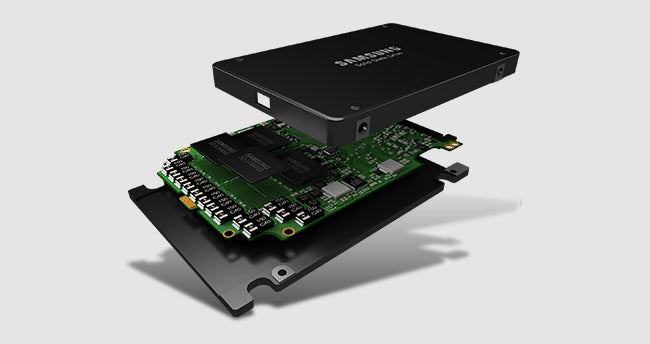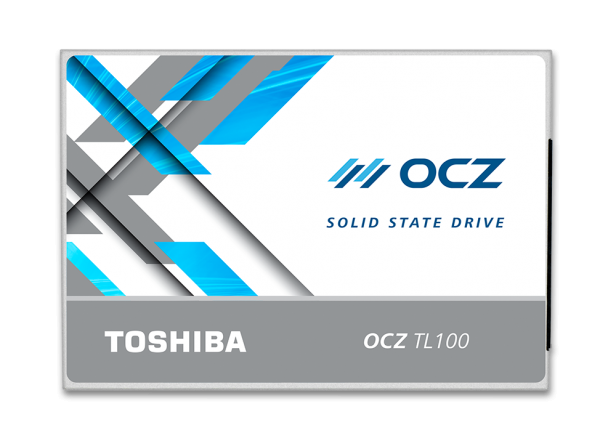Cheap laptops might finally get super-quick SSDs: Here’s why

Cheap laptops with high-performance storage may just be around the corner. Computing Editor Michael Passingham rejoices.
You know that rattle you hear coming from the inside of your cheap laptop you bought a couple of years ago? That’s the mechanical hard disk, and likely the reason you find yourself so frequently frustrated by the speed of your laptop. Slotting in a much faster SSD (solid-state drive) can massively improve performance for a lot less cash than replacing your laptop.
Related: How to upgrade your laptop’s hard disk to an SSD
Soon, you might not have to pay extra to get silky smooth SSD performance.
The ultra-cheap SSD floodgate has truly opened. SanDisk arrived last year with its Z400 SSDs, Patriot introduced the Spark SSD in May and today, Toshiba unveiled its OCZ TL100.
I think I can finally herald the arrival of a tech revolution I’ve been waiting on for years.
These brand-new SSDs offer performance up to five times faster than a standard mechanical hard disks for a price that’s quite simply unheard of for a consumer SSD. 
All hail the DRAMless SSD
The launch price for the smallest-capacity 120GB OCZ TL100, announced today, is just $45, which is around £41 including VAT here in the UK. Considering that SSDs almost always drop in price soon after launch coupled with the sale price of SSDs to laptop makers being considerably lower, you can see where this is going.
__________
DRAMless SSDs explained
The cheap SSDs we’re talking about here are a new breed of product that come without any DRAM (dynamic random-access memory), and are called DRAMless. Ditching the DRAM decreases production costs because it requires fewer materials and a less complex design process.
Without DRAM, the SSDs borrow memory from your laptop’s RAM. This makes them slower, but still much faster than a regular hard disk.
__________
Laptop makers can now look at a pile of parts and see that, beyond the processor and see that the next best way to improve performance is to slap an SSD in.
Related: Best SSDs to buy
There are some hurdles to overcome, which will rely on you, the buyer, to make some concessions. First: the drawback of ultra-cheap SSDs beyond slower speeds is the data warranty, which maxes out at 30TB (terabyte = 1,000GB) of data written on a 120GB drive. Compared to only slightly more expensive products with warranties of 80TB, this is tiny.
However, when you consider that a laptop normally only comes with a one-year warranty unless you pay for extended coverage, this probably won’t even factor into most people’s buying decision.
The second is a lack of an impressive number. These days it’s hard to buy a £300 laptop without a 500GB or 1TB hard disk on board, so to be downgraded to a 120GB or 240GB might look a bit tight to the uninformed buyer. A bit of sensible data management and using a good cloud storage provider are both easy solutions. Of course, if you simply must have 1TB of local storage, you might consider a cheap external hard disk connected over USB 3.0.
It’ll be down to marketers and retailers to get consumers to understand the amazing performance boost they’ll get from buying a laptop with a smaller SSD inside. With prices getting even lower, this should become a lot easier.
Laptop makers: over to you.
Related: Oculus Rift vs HTC Vive
Watch: Intel Core i processors explained
Tell us what you think of this article in the comments below.


